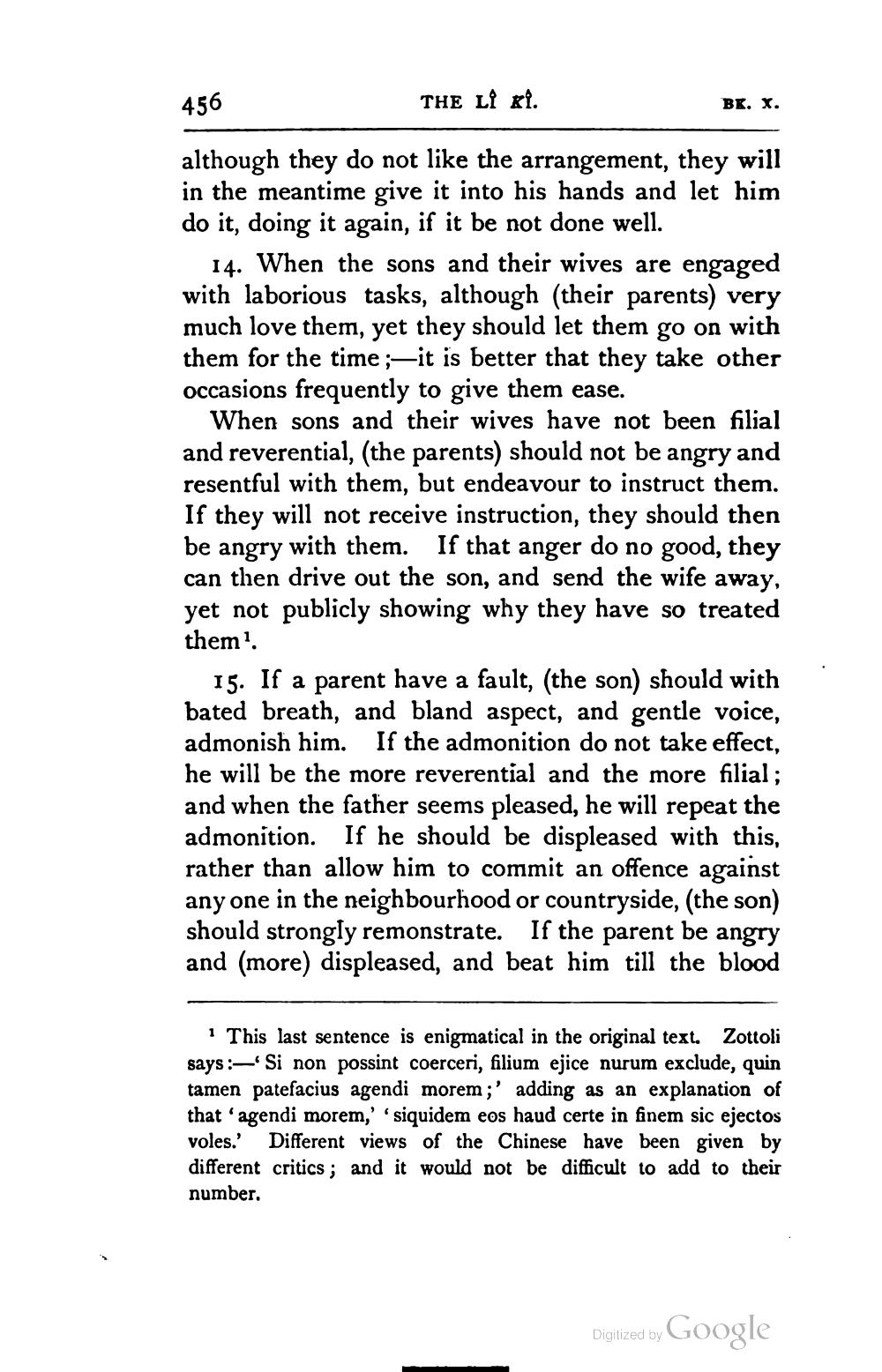________________
456
THE LÝ K.
BK. X.
although they do not like the arrangement, they will in the meantime give it into his hands and let him do it, doing it again, if it be not done well.
14. When the sons and their wives are engaged with laborious tasks, although (their parents) very much love them, yet they should let them go on with them for the time ;—it is better that they take other occasions frequently to give them ease.
When sons and their wives have not been filial and reverential, (the parents) should not be angry and resentful with them, but endeavour to instruct them. If they will not receive instruction, they should then be angry with them. If that anger do no good, they can then drive out the son, and send the wife away, yet not publicly showing why they have so treated them?.
15. If a parent have a fault, (the son) should with bated breath, and bland aspect, and gentle voice, admonish him. If the admonition do not take effect, he will be the more reverential and the more filial; and when the father seems pleased, he will repeat the admonition. If he should be displeased with this, rather than allow him to commit an offence against any one in the neighbourhood or countryside, (the son) should strongly remonstrate. If the parent be angry and (more) displeased, and beat him till the blood
This last sentence is enigmatical in the original text. Zottoli says :- Si non possint coerceri, filium ejice nurum exclude, quin tamen patefacius agendi morem;' adding as an explanation of that agendi morem,' siquidem eos haud certe in finem sic ejectos voles.' Different views of the Chinese have been given by different critics; and it would not be difficult to add to their number,
Digitized by Google




